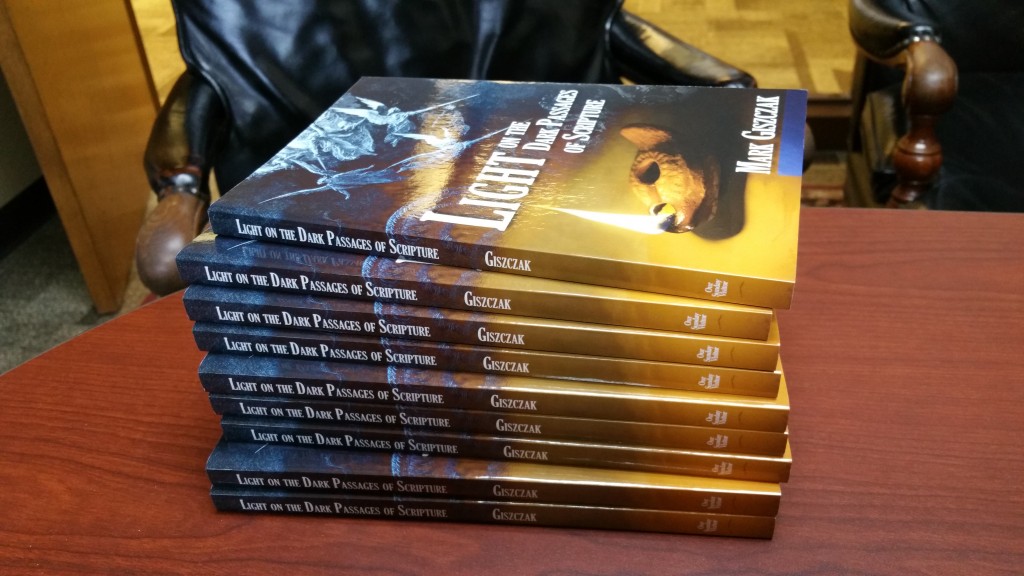I want to tie up some loose ends in this post.
Bible Book Introductions
From 2006-2008, I was writing for a website called eCatholicHub.net. I wrote introductions to the books of the Bible and Lectio Divina meditations on the Sunday readings. I also produced a database of saints based on the Roman Martyrology for the site. In 2009, eCatholicHub closed up shop and all the content I had produced was transferred to Catholic News Agency. Their Bible page still houses my introductions to biblical books.
Roman Martyrology

CNA already had a saint database, so I’m not sure exactly how (or if) they used the Roman Martyrology data that I provided. I should explain that I did not translate the whole 2004 Martyrology. Rather, I used the Martyrology to piece together the most complete possible list of saints and blesseds. I referred to the Martyrology project in a few previous posts: here, and here, also here. A few years have passed, so quite a few new saints and blesseds would need to be added to a new edition. As far as I know, there is no current English translation of the Martyrology.
On that note, I also wanted to straighten out exactly what editions exist. The most important one is the 2004 editio typica (official) in Latin:
- Congregation of Divine Worship and the Discipline of the Sacraments. Martyrologium Romanum. Rome: Libreria Editrice Vaticana, 2004. ISBN: 978-88-2097-210-3. 844 pp.
The Latin uses some very obscure abbreviations that took me a lot of toil to figure out. Some of that is took place in an interchange with Fr. Z and his readers.
The previous editio typica came out in 2001, but was quickly superseded by the 2004 edition. For the sake of completeness:
- Congregation of Divine Worship and the Discipline of the Sacraments. Martyrologium Romanum. Rome: Libreria Editrice Vaticana, 2001. 773 pp.
English translations of older editions:
- O’Connell, J. B. The Roman Martyrology, in which are to be found the eulogies of the saints and blessed approved by the Sacred Congregation of Rites up to 1961. An English translation from the 4th ed. after the typical edition (1956) approved by Pope Benedict XV (1922). Westminster, MD: Newman, 1962. LCCN: 62-21497. 412 pp.
- Collins, Raphael J. The Roman Martyrology: The 3d Turin ed., according to the original, complete with the proper eulogies of recent saints and offices. Westminster, MD: Newman, 1946. LCCN: 46-6139. 352 pp.
- The Roman Martyrology, in accordance with the reforms of Pope Pius X; in which are to be found the eulogies of the saints and blessed approved by the Sacred Congregation of Rites up to the present time, with supplements for the Carmelite, Franciscan and Servite orders, and for the Society of Jesus. London: Burns, Oates and Washbourne, 1923. 516 pp.
- The Roman Martyrology published by order of Gregory XIII, revised by the authority of Urban VIII, and Clement X. Afterwards, in the year 1749, augmented and corrected by Benedict XIV. Baltimore: John Murphy, 1916. (Based on the 1914 Latin text.) Online at archive.org.
While not everyone reads the Roman Martyrology on a regular basis, it seems like it might be time for a complete English translation. I’d be happy to help, but I’m sure I’d need to consult some serious Latin experts to bring it to completion.
 So…if you want to order one and see what I have to say about the nasty stuff in the Bible, you can order in two ways:
So…if you want to order one and see what I have to say about the nasty stuff in the Bible, you can order in two ways:

